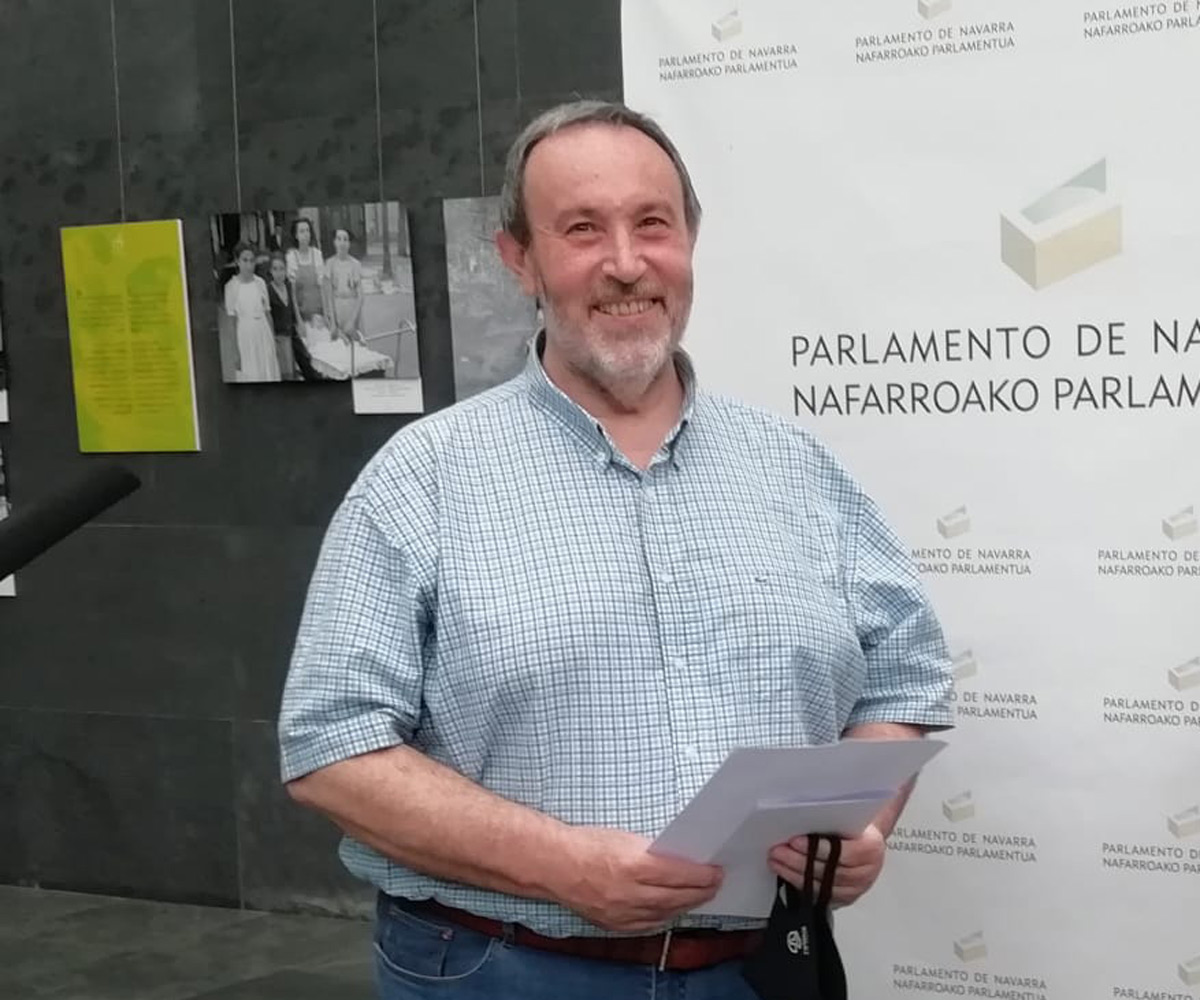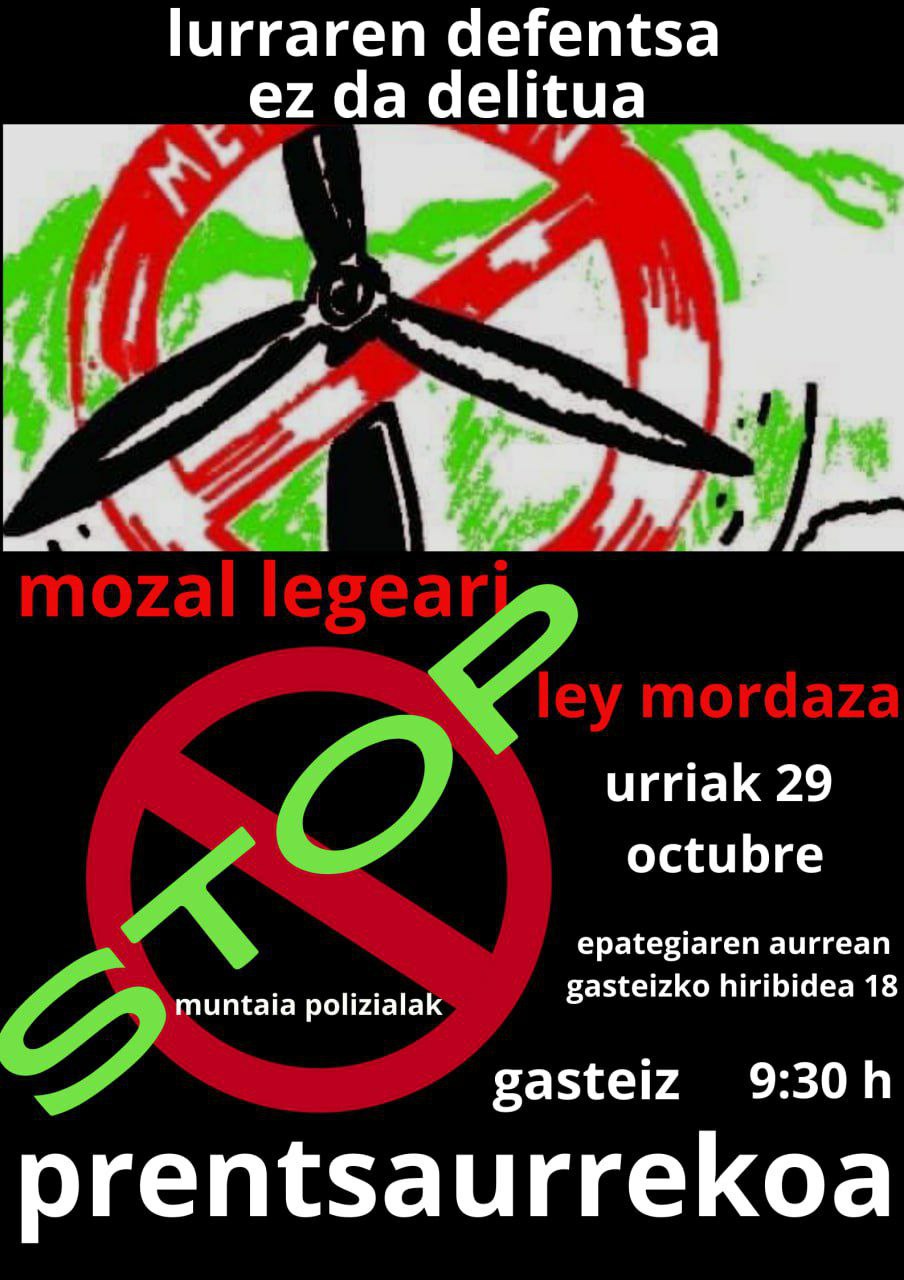A place in the world
- Some of us were born here, randomness decided that we would be part of 11 percent of the population. Others decided to be rural and live in 89 percent of the territory. We have all recognized that living here has extraordinary difficulties, that from the administration they will not put any special force to bring and maintain public services, because, of course, we are only 11% of the population! We only have land. Land and border, slopes and peaks, regatta and sea. We've formed communities and local councillors and neighborhoods around neighborhoods, and we try to live with those supports that we have. Every day we strive, with our life projects, to offer from this modest organization stimulating alternatives for all people, from the small to the community, caring for the land that has welcomed us in its furniture.
We who live in the countryside are the land, the border, the slopes, the peaks, the streams and the sea. And everything that can enter them, everyone that can enter, also makes us. That is, without them, we are not. That is why we are making words from Joseba Sarrionandia: “It hardly leaves his native land where it has roots.”
Fatigue needs a lot, enormous, to leave someone to their homeland, their place in the world. In rural areas exile is not new, our ancestors suffered, and since then the moth has not ceased. The future was there – it is – on the other hand, in 11% of the territory, where roads and railways start and end.
Believing that there was nothing here and that everything was in the urban area, this death and there life. A pandemic showed us that our value, that those who do us are not only elements for enjoyment, but are essential respiratory spaces. Our work was more basic than ever, because there was no access to food from the outside, pressure from an entire society made the ban on fairs last only two days. We fear that the wind has taken all of them.
There is no more than taking journals from authorities of different administrations to read that the proper location of energy macro-projects, and others, is rural, among other things, because we live few people and, therefore, the impact it will have on society is small, therefore acceptable. It is the field of slaughter. Sacrificial territories. Of the sacrificial people. We are talking about ourselves in official papers. And of you, you live in urban space.
Because the two areas are necessarily complementary – another thing is the power relationship that has been built. The ones we see when you open the window, whether you're conscious or not, are also part of you. Without knowing the existence of these valleys or mountain helmets. Moreover, maybe some of the dishes you have in the kitchen have been created here and pass through our hands, whether animals or vegetables.
Will we have bread if we cover the fields with solar panels? If you cover cereal planting or herbal curing for the winter, will it be for the animals here to eat? If not, why milk and meat? If you can't plant beet between the solar panels, isn't there sugar?
The changes inherent in windmill facilities and high-voltage lines – explosions, land movements, the disappearance of springs… – how will they affect mountain farming?
The motto "0km" complies with the announcements, everything is local – almost everything is ecological or – but reality shows us that, as in some canning boats, you have to read the small letter and that the kilometres often start counting in the port of Bilbao.
How, if not, to understand that administrations have such an interest in concluding trade agreements with countries on the other side of any ocean? From here export technology, machine tools and trains, in exchange for bringing local food at price.
Sovereignty is understood as an emergency concept to use bubbles swollen by markets after they erupt. They have emptied sovereignty and used it with convenience, until it becomes a nonsense. Examples are subsidies to synthetic meat production laboratories and institutional support. Of these, hydroponic greenhouses. Examples are the planned macro-projects.
It is difficult to understand the concept of sovereignty in its entirety when it comes from the hand of the Brazilian multinational Biotech Foods, which has a close relationship with Bolsonaro, to create meat in a laboratory in San Sebastián. It is even more difficult when all technology and knowledge is in the hands of private capital, and very serious if we consider that it has received public money from CAPV, state and European Union funds.
Similar to tomatoes. In this case, the multinational Hispalus –Araba s.l. Registered as Tuesta, when it receives public subsidies for the construction of 20 hectares of greenhouse, which in principle will be five. Tomatoes will now be sold in Eroski and then in France.
As far as industrial electrical installations are concerned, the other is all the money and institutional protection. Ad hoc laws and regulations aimed at the economic security of energy multinationals. All for the benefit of the Spanish Electricity Network and the electricity oligopoly quoted in the IBEX 35.
In the face of the situation, anyone would say that they want us to be expelled from here, that they do not want to testify to the attempt at energy colonialism being made in the territory, nor a country that defends the land.
We also get questions, which can be simple for some, but essential for all people, to know what our place in the world is.
Who stays if what the window shows us is black in the villages and mountains? Who will look at the horizon that will remain behind the barrotes of the summits? If we have to put into the hands of the multinationals the food, the natural and cultural heritage of this country, what are we for? What are these hands for? Why, the knowledge transmitted from generation to generation?
What is the point of the land that makes us and the horizon, the slopes and the peaks, the streams and the sea?
Although it is difficult to breathe hope from here, we have no more. Our place in the world is this, we have no more. It is what the poet said in his heart: “It is hard to leave his land of origin who has its roots.”
That is why we joined the day of the mobilization organized by EH Bizirik on 13 April in Azpeitia.
Bidali zure iritzi artikuluak iritzia@argia.eus helbide elektronikora
ARGIAk ez du zertan bat etorri artikuluen edukiarekin. Idatzien gehienezko luzera 4.500 karakterekoa da (espazioak barne). Idazkera aldetik gutxieneko zuzentasun bat beharrezkoa da: batetik, ARGIAk ezin du hartu zuzenketa sakona egiteko lanik; bestetik, egitekotan edukia nahi gabe aldatzeko arriskua dago. ARGIAk azaleko zuzenketak edo moldaketak egingo dizkie artikuluei, behar izanez gero.
Wikipedia.org considers that Gish gallop (Gish's gallop) or the machine gun of fallacies "is a technique of controversy that attacks the opponent with as many arguments as possible, without taking into account the accuracy or solidity of those arguments" and would have as side... [+]
The origin of the term lies at the beginning of the nineteenth century. At that time, the imperialist pretensions of the British Liberals clashed with the Russians, which spread in Asia and hindered the desire for colonization of England. To protect its interests, England used... [+]
I started to mentally write my article while I was in the car. I usually have the best ideas in the car while driving alone. I'm going to Bilbao, to the Arriaga theater. The Artedrama company is today staging the Miñan play. It's Friday, October 25.
Approaching the atrium of the... [+]
The society in which we live is absolutely based on subordination. Over the centuries, our lives have been shaped according to it, and little by little the power of decision, freedom and sovereignty have been reduced. Sometimes they've taken us away with force, sometimes we've... [+]
What blew me a lot is the way some doctors talk to the patient. They talk to us about pain as if we were children. As I have had two kidney transplants, I know what I mean: among other things, I have had a tube inside my penis. Because of the anesthesia, I didn't feel how I got... [+]
The two main voters in Kanbo (the mayor and the prime minister) are the rabid ones. Three citizens have been beaten with a plainta, for protesting in favour of the eviction of the neighbor Marienea.Es the second time that, at 06:00 in the morning, they take us out of bed (with... [+]
“The time has come for courageous, comprehensive and noble proposals (…) for Euskal Herria to re-enter the world’s revolts,” said friend Hartu López Arana in her opinion article “For an effective aggression” published in ARGIA magazine in July 2018. Six years have... [+]
We are seeing more and more spelling errors in the writings of social networks, not only of young people, but also of the media. Some have become so common that they hardly hurt their eyes.
In this way, we can read in Spanish many things like: "You lose a dog," "It'll be that or k... [+]
Comprehensive planning
Today's cities need profound transformation processes in all areas. The challenges faced by societies and cities are enormous and to address them it is essential to carry out comprehensive diagnostic and planning exercises and, subsequently, to make shared... [+]
By 21 October, the network, named Palestinian Gernika, called for mobilizations. This is an initiative to denounce the genocide suffered by Palestine and to fight for peace, and it cannot be put against these two causes. Solidarity leads us to position ourselves in favour of the... [+]
We have recently held a meeting in Vitoria-Gasteiz to welcome the Basque world, organised by the Council of Euskalgintza and the Basque Government. One of the main current challenges of the revitalization process of the Basque Country is to make allies with the new citizens who... [+]










